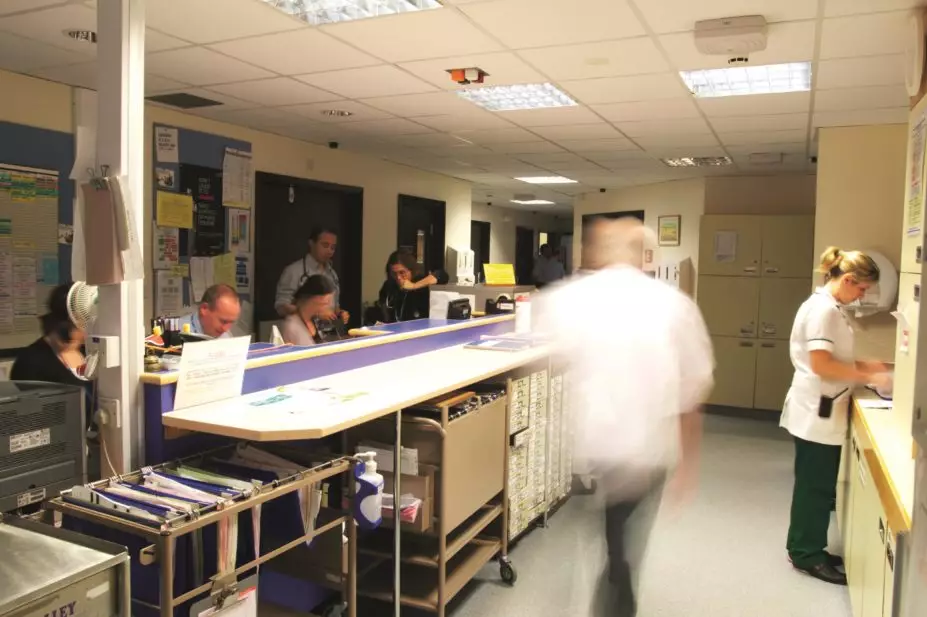
Julian Claxton / Alamy
Reviewing the medication of patients presenting at hospital promptly was not found to have an impact on the length of hospital admission, mortality or re-admissions, finds a systematic review[1]
published in the British Journal of Clinical Pharmacology on 3 June 2015.
Researchers identified seven studies, reporting the outcomes of 3,292 patients. Patients had been randomised to a pharmacist-led medication review or a control group.
The medication review had to include obtaining a best possible medication history and reviewing medications for appropriateness and adverse drug events. The intervention had to be initiated within 24 hours of emergency department presentation or 72 hours of hospital admission.
Data from studies of the same design were pooled. The results showed no significant differences in length of hospital admission (weighted mean difference [WMD] -0.04 days, 95% confidence interval [CI] -1.63–1.55), mortality (odds ratio [OR] 1.09, 95% CI 0.69–1.72), readmissions (OR 1.15, 95% CI 0.81–1.63) or emergency department revisits at three months (OR 0.60, 95% CI 0.27–1.32).
“Limitations in the available evidence, including the number, size and quality of available studies, precluded us from concluding that no effect exists,” the researchers say.
The wide confidence intervals suggested that additional research could clarify whether medication reviews do have a beneficial effect on patient outcomes, the researchers add, which is important because medication reviews are “costly and resource intensive”.
“It’s disappointing that this review did not show clear statistical benefits, but it would be wrong to throw the baby of pharmacist care out with the bathwater of wide confidence intervals,” says Ann Page, lead pharmacist in education and training, medicine health group, Hull and East Yorkshire NHS Trust, and on the general committee of the United Kingdom Clinical Pharmacy Association.
A study[2] published in 2007 showed that pharmacy services can decrease mortality, but that medication history taking and review was not one of the most significant interventions, Page says.“It’s important to look at pharmacist contribution in total, not a single intervention,” she adds.
“It’s also vital to consider activity in hospitals as part of the wider NHS pharmacy service, linking into primary care via schemes such as the New Medicines Service and the Welsh Discharge Medication Review service.”
David Miller, president of the Guild of Healthcare Pharmacists and chief pharmacist at City Hospitals, Sunderland NHS Foundation Trust, agrees. “Whilst accepting that medicines optimisation and discharge planning starts at the point of admission, here we would focus initially on effective medicines reconciliation and usually discussions on potential discontinuations and optimising concordance with the patient would not always be part of the initial pharmaceutical input,” he says.
References
[1] Hohl CM, Wickham ME, Sobolev B et al. The effect of early in-hospital medication review on health outcomes: a systematic review. British Journal of Clinical Pharmacology 2015. doi:10.1111/bcp.12585.
[2] Bond CA & Raehl CL. Clinical pharmacy services, pharmacy staffing, and hospital mortality rates. Pharmacotherapy 2007;27(4):481–493.
